
I just got back from CES 2025 and to say it was a good show for tech and health wearables would be an understatement. I saw and demoed dozens of intriguing products ranging from the coolest new smart rings — of which there were many — to a pair of e-power pants that can actually help you walk longer, faster and further… something I wish I could’ve worn the entire duration of the show, though a one-hour demo was enough to leave me wanting more.
Including launches from both major players (like Garmin) and newer startups, these are the seven newly-debuted products I’m most excited to get my hands on for testing in 2025.
1. Garmin Instinct 3
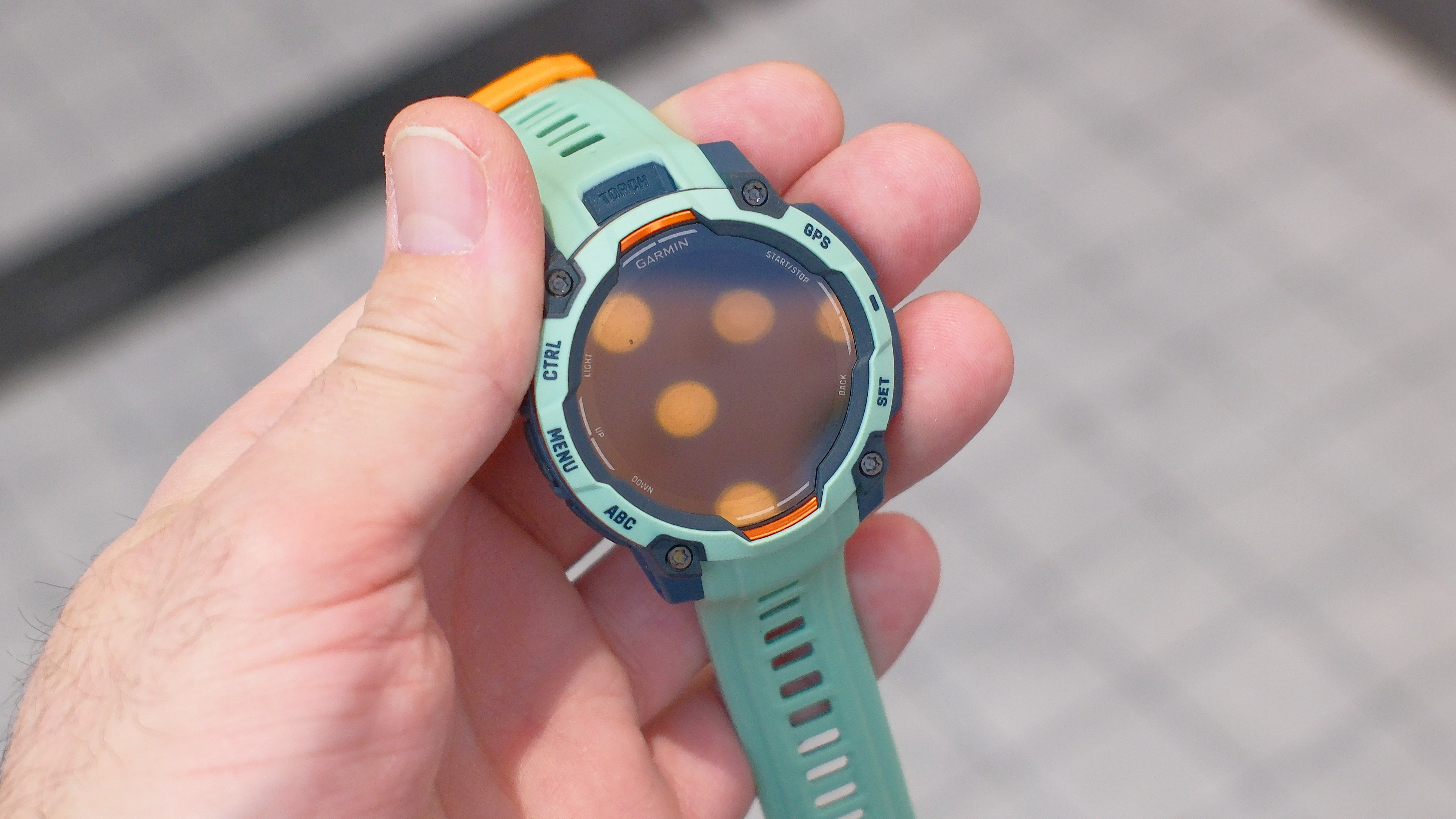
Even before the Instinct 3 launched I was a fan of Garmin's Instinct line and frequently found myself recommending various Instinct 2 models to friends, family and readers.
The Instinct 3 isn’t an earth-shattering update over its predecessor but it also doesn’t need to be; here are my initial impressions of the Instinct 3.
Garmin was wise to stick with what the people love about the series: a tough and sporty build-quality with a best-in-class battery, loads of health tracking tools, accurate GPS and a stomachable price point. Rather than fix what wasn't broken, the GPS device giant made small but meaningful improvements.
The new model, like its predecessors, comes in a bunch of varieties, including with or without solar charging, and in 45mm or a monstrous 50mm case size. The non-solar versions now sport a bright and immersive AMOLED screen — a first for the line — yet still maintain up to 24 days of battery in smartwatch mode. With enough sunlight, the solar model can in theory last forever.
A super-handy LED flashlight adorns the 12:00-position on all the models in the line and a new metal bezel adds to the device’s durability. Finally, GPS accuracy should now be even more precise thanks to an upgraded dual-band antenna.
Thanks to the kind folks at Garmin, I was able to snag a 45mm AMOLED model to wear during the show — I logged 17,000 steps on the second day alone — and it’s still on my wrist as we speak. So yeah, you could say that I'm liking it. Stay tuned for a full review in the coming weeks.
2. Amazfit Active 2
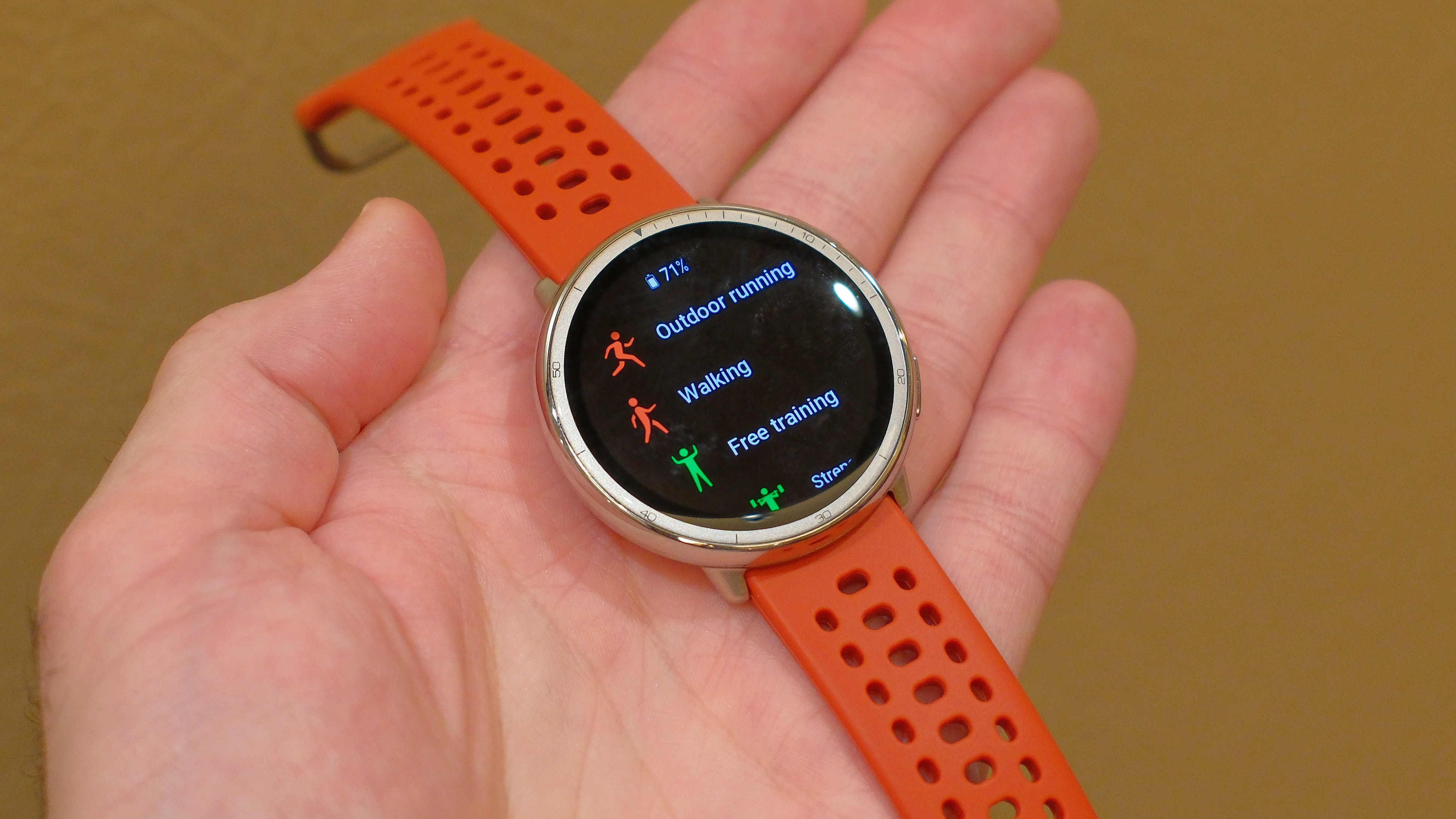
My other favorite smartwatch that debuted at CES 2025 was the Amazfit Active 2, a svelte and well-built little device with high-end features ordinarily found on devices three to four times its price.
Starting at just $99, the Active 2 boasts an all-metal circular case with a faux tachymeter around the bezel for a touch of class, a 2,000 nit max AMOLED screen similar to what you get on the latest Apple Watch 10 and Pixel Watch 3, support for downloaded maps that can be used for offline navigation — even the Garmin Forerunner 265 doesn't have this — and over 160 workout/sport tracking modes.
A premium version of the watch is also on offer for $129. That extra dough gets you an upgraded sapphire screen, a brushed stainless case and a soft, easy-wearing leather strap.
Like the Instinct 3, stay tuned for a full review of the Active 2, to be published soon. In the meantime, there’s good reason to believe that it could be the smartwatch to beat for under $100 in 2025.
3. MO/GO power pants

It’s been a little over a year since I first caught wind of the MO/GO power pants and at CES 2025, I finally got the chance to slip them on and take the robot-powered legs for a spin. The experience was nothing short of awesome (demo video below).
While I only got to climb up and down a dingy set of basement stairs on the tradeshow floor with the power pants on, my mind was off to the Cascade Mountains of the U.S. Pacific Northwest, cruising up my favorite hiking trail like some sort of intrepid Inspector Gadget-type fellow… but with an Arc’teryx puffer instead of a trenchcoat.
This mobility device is intended to help folks conquer new terrain and hike without pain. A collaboration between outerwear brand Arc’teryx and Google hardware spinoff Skip, I’m already looking forward to make next opportunity to test them in the actual wild. Thankfully, the fine folks at Arc’teryx are just a day’s drive away, so, a more in-depth demo should be in the cards!
For now, you can get on a waiting list to demo the MO/GO pants for yourself by heading to Skipwithjoy.com.
4. Circular Ring 2
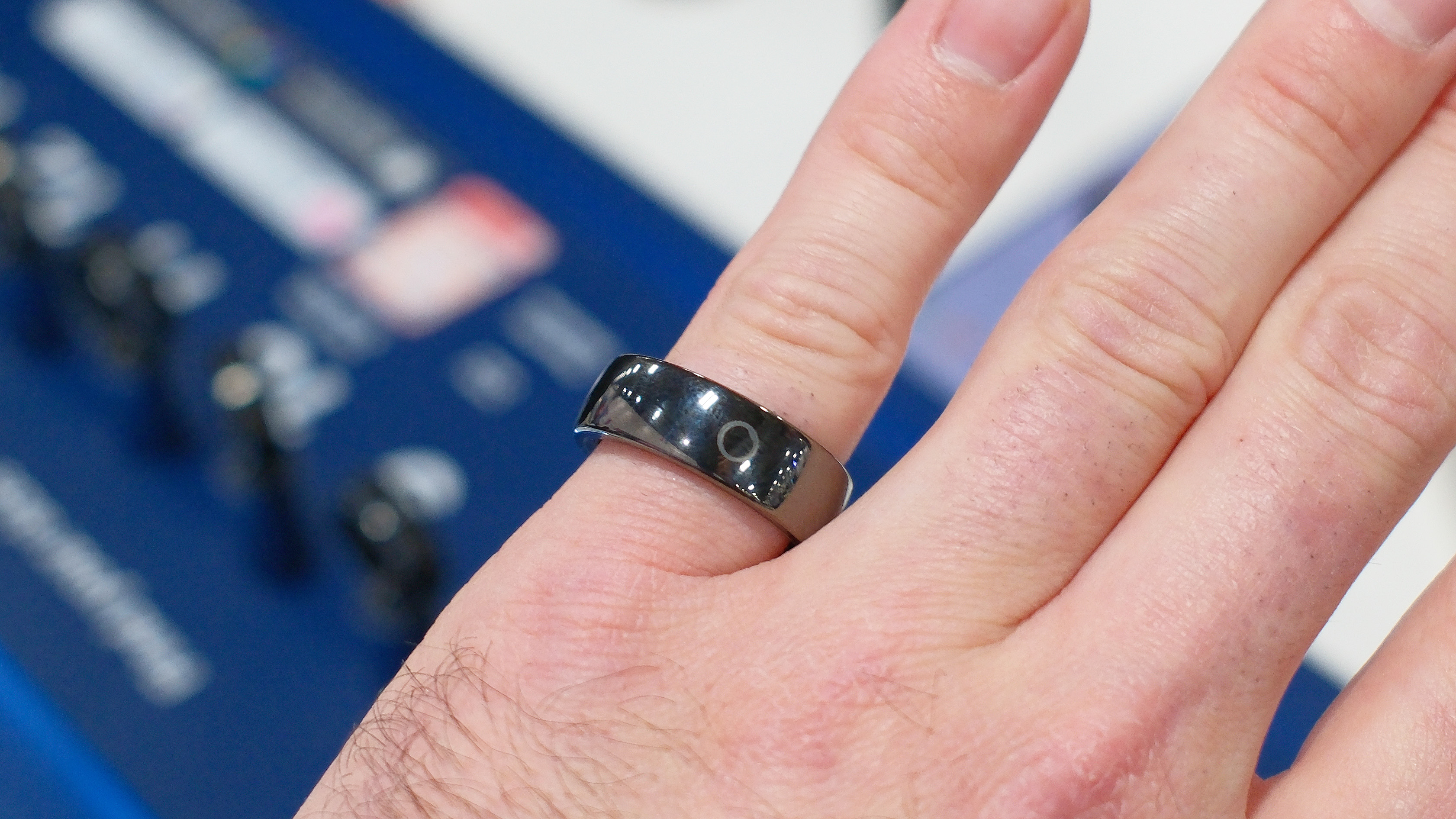
I saw a lot of smart rings at CES 2025 but the Circular Ring 2 was the most impressive thanks to its potentially revolutionary new digital sizing process, which could be the nail in the coffin for annoying and wasteful plastic sizing kits.
It also is among the first smart rings with an ECG sensor and is even approved by the FDA for AFib detection. Beyond that, the Circular 2 is subscription-free, sorry Oura, and plays well with all major smartphone operating systems, sorry Samsung.
Read more about the Circular Ring 2 in our best of CES 2025 product roundup.
5. Luna Ring 2
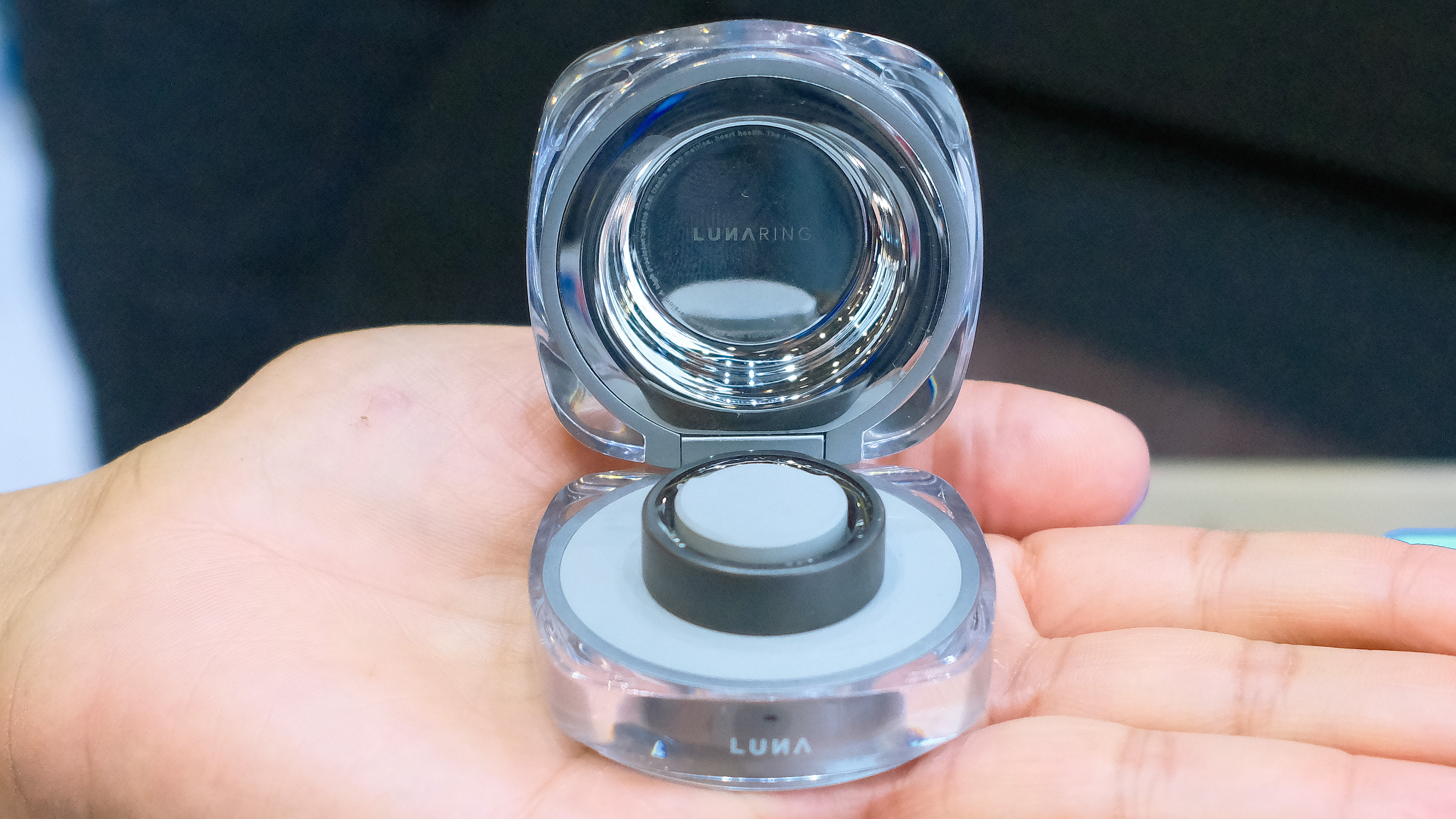
The Luna Ring 2 is another noteworthy smart ring I got the chance to demo on the show floor. Developed and manufactured by the India-based brand, Noise — which has a huge presence outside the U.S. but is somewhat new here — the Luna Ring 2 has a whole lot going for it.
Callouts include a $300 price point with no subscription and an all-titanium design that is slightly lighter than the Oura Ring Ring 4, and packed with similar health sensors to monitor heart soundness, sleep quality, energy levels and more. Battery life is between five to six days, however, with the optional charging case, users can get closer to 30 days of battery by occasionally popping the ring inside of said clamshell case.
I tried on the ring and also handled the case, both of which felt solid and high-end to me. Luna was rad enough to send me home with a reviewable unit, so, like all the products mentioned above, expect much more review content on the Luna Ring 2 soon.
6. VIV Ring
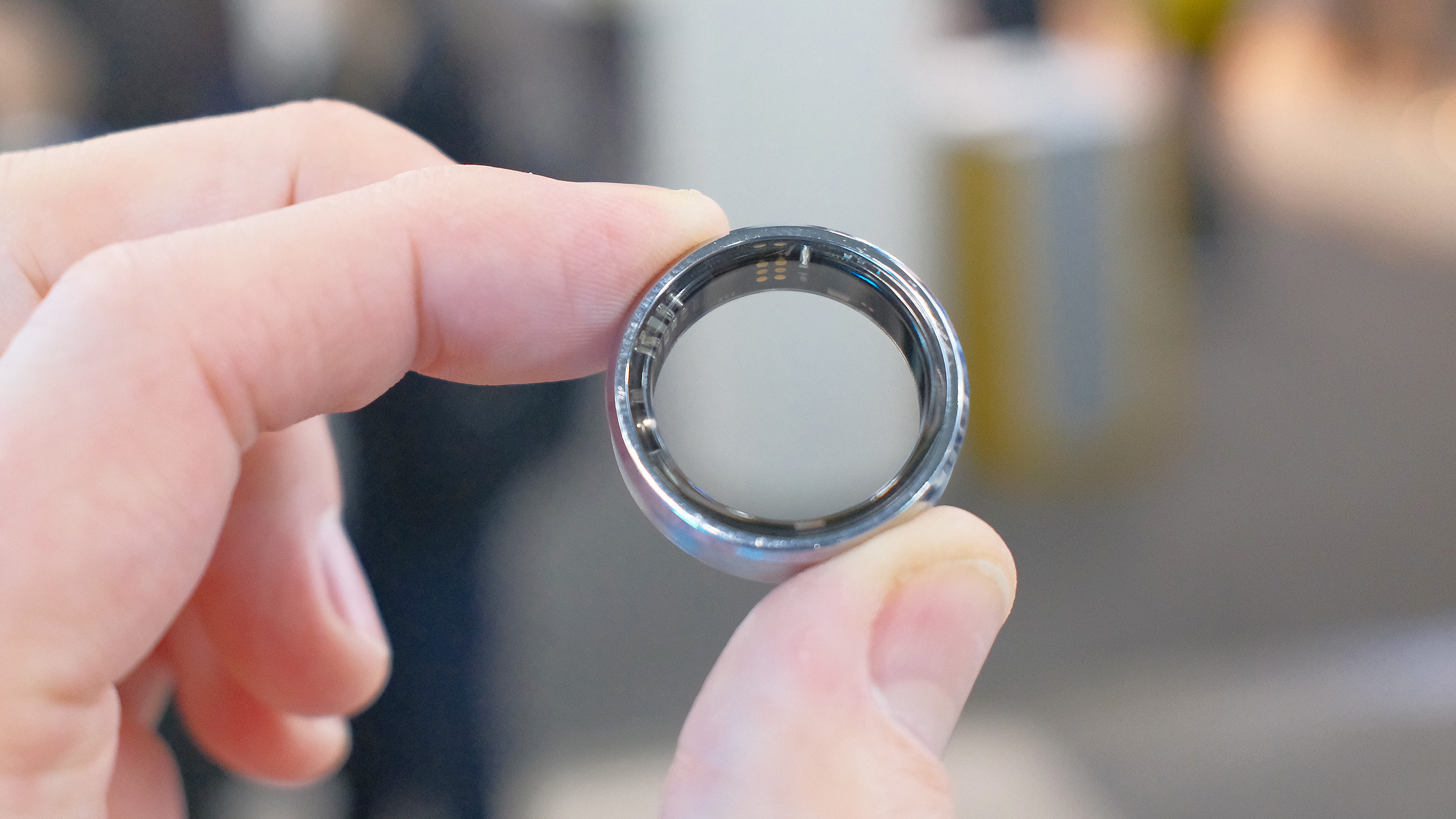
Shoutout to my colleague on the TG Sleep Team, Eve Davies for spotting the release of the VIV Ring at CES. While it may look like other smart rings out there — indeed it monitors a similar set of biometric data points and offers sleep tracking and wellness insights — the VIV Ring is the only smart ring I’m aware of that can use your body data to generate audio aimed at improving your sleep quality.
Did I get to demo the feature? No. Even if the folks at the VIV both were able to offer a demo, I’m not sure there’s a human on earth capable of taking a snooze inside a crowded and brightly lit tradeshow hall.
Even still, the VIV Ring and charging case are both reassuringly well-constructed. There are no pricing details yet but I have a sneaking suspicion that the product will come in at a lower cost than the competition. Sizing is expected to be six through 13. And like the Luna Ring 2 and Circular Ring 2, this smart ring is titanium and without a subscription.
7. UltraHuman Rare Collection
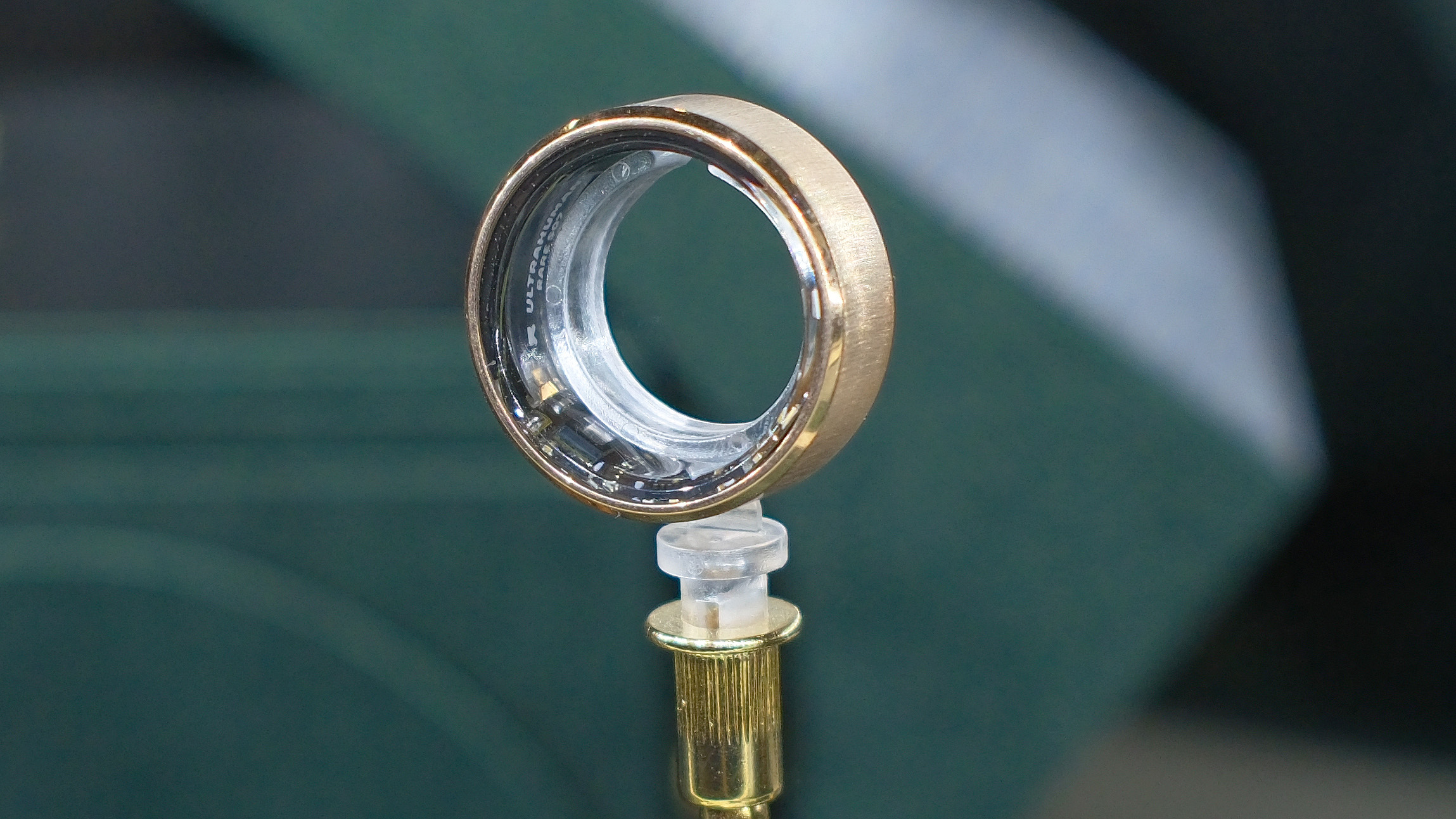
Okay, this is the final smart ring, I promise. Ultrahuman didn’t have any earth-shattering new tech to show off but there was a flashy new set of luxury smart rings on display, part of the brand’s new Rare collection. With a gold, platinum, and silver option — each with a somewhat silly name, like Dune, Desert Rose and Desert Snow — Ultrahuman appears to be courting the soon-to-be-wed tech geek crowd with this offering.
The Desert Rose and Dune rings are both gold and will cost around $1,900 while the Desert Snow ring is platinum and will start at $2,200. In terms of onboard tech and features, these devices are identical to the Ultrahuman Ring Air, which starts at $349. Of course, that model contains no precious metal.
My immediate question when seeing the Rare collection and hearing the cost was, ‘What happens in a few years when the battery inevitably dies?’
I was assured that purchasing the Rare collection comes with some sort of lifetime guarantee. However, I’ve yet to come across concrete details about said coverage but will update this post when I do find out more.
Bonus: Withings BPM Vision
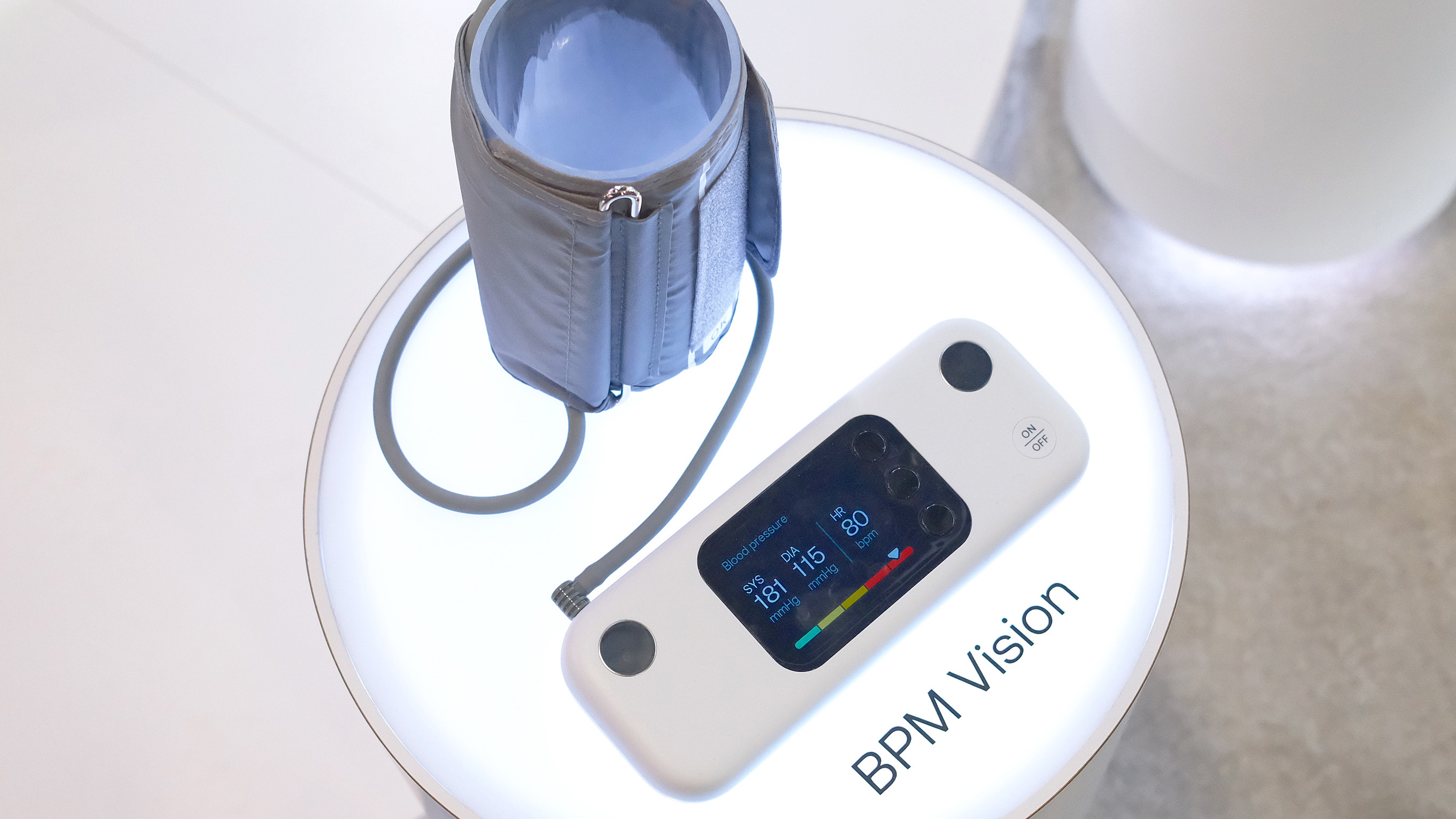
Withings didn’t have a truly operation version of the new BPM Vision heart rate cuff and blood pressure monitor available to test but I did get to see a demo of how it works (along with the brand's weird new Omnia smart mirror). The whole idea with this product is that the current slate of at-home blood pressure monitors can be tricky to use correctly, resulting in skewed results.
Withings wanted to simplify the process for better accuracy and ease of use, especially for elder users. To accomplish this, the brand equipped the BPM Vision with a large, high-resolution screen that displays helpful tutorials to guide users on how to best prepare before their readings and wear the cuff for the most accurate results possible. It also explains how to make the most out of the resulting data.
I’ve used at-home heart rate monitors and they’re finicky, to say the least. The new Withings BPM Vision, which looks kind of like a goofy Nintendo Switch Lite (IMHO), could potentially revolutionize at-home heart health monitoring.
However, with a launch price of $129, it’s a lot more expensive than what’s currently available; the heart rate monitor I used set me back just $35 on Amazon. That said, if it truly makes the process of monitoring one blood pressure easier and more accurate, then that added price could well be worth it.
The Withings BPM Vision is still awaiting FDA approval but is expected to launch in the U.S. in April.







